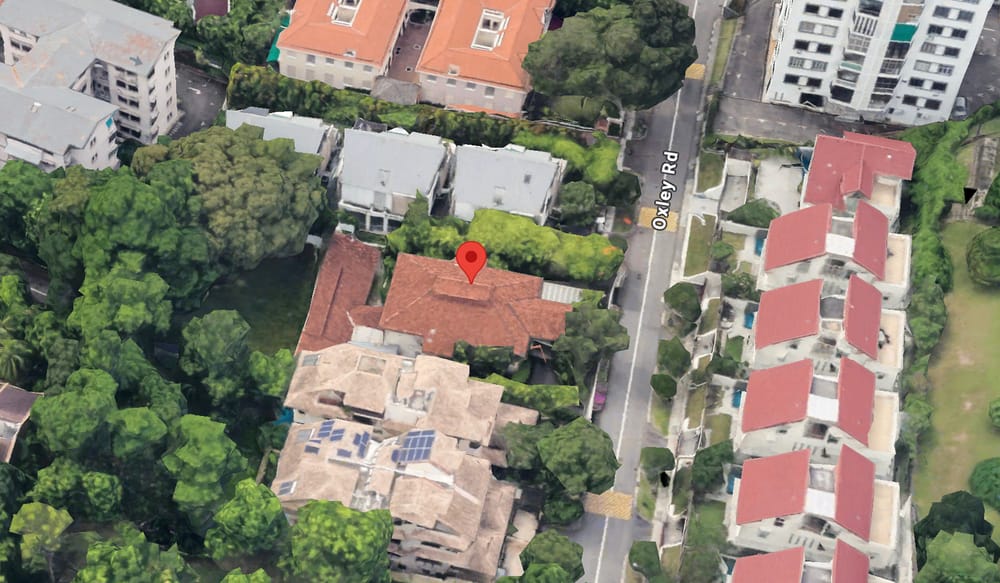In the final part of my series on SPH and the future of the media landscape, I am moving beyond current affairs to explore ideas for how the news industry should function in the future - to achieve both balanced reporting as well as serve as a high-quality public service, keeping everyone informed (what is essential for every democracy).
The ongoing saga has provided me with a great opportunity to share thoughts that have formed in my head over the past years as I observed the progressive degeneration of the so-called “independent” media in the West (you can read in this FB post I published recently, why calling any media independent is a farce).
So, what does healthcare have to do with news reporting? Quite a lot, actually.
In both cases, focusing on profit doesn’t produce the most desirable results. I’ve never heard anybody complain, “our hospitals should be more profitable!“, because money is never a consideration. Health, well-being and longevity of the people are.
Similarly, we should stop judging news reporting by financial performance. The role of the news media is to provide accurate information to citizens so that they can make well-informed choices - in their lives and during regular elections.
The nature of the free markets is that they promote whatever makes the most money for company owners. This is typically the best incentive in almost all industries in the world, as financial reward is linked to a higher quality, functionality or desirability of a product or service.
Free markets, however, do not work when the best outcome is not necessarily the most profitable.
Let’s look at healthcare again. What each and every one of us wants most is to avoid having to visit doctors altogether - this is best for us and best for the entire country.
It can be achieved with good prevention - i.e. good diet, exercise, regular screening. None of these provide much money for healthcare businesses, though. They make the most when they perform advanced treatments, and develop new drugs or equipment that they can sell with a high premium to patients in need.
It’s very obvious in America, suffering from civilizational diseases keeping life expectancy below 80 years - about 3 less than in neighbouring Canada or the UK, or as many as 5-6 years less than in Singapore, Hong Kong or Japan - even though the USA is the global leader in medical innovation. Patients from all over the world flock to the US in the hope of gaining access to the cutting-edge treatments that could save or improve their lives.
At the same time, more than 2/3s of Americans are overweight, with half of them obese. So, for all the excellence of the private sector, the worst health problems are not addressed because the incentive to do that is slim, and the government is clearly absent from the effort.

On the opposite end of the spectrum are the single-payer systems in Europe, which (theoretically) provide coverage to all people, guaranteeing they receive necessary treatments or access to specialists (either free of charge or with a small pay). However, for all the promises of good care for all, they are often financially and organizationally inefficient, leading to long wait times for visits or procedures and persistent debt problems requiring constant government support.
And then, there’s Singapore.

Yes, Singapore spends around 4 times less on healthcare in proportion to GDP than the US and more than 2 times less than European countries do - while achieving excellent results.
The secret to Singapore’s success lies in the realization that the government has to play a moderating role in the system. It cannot dominate it - but it cannot be completely absent from it either.
It’s a necessary participant whose presence sets service standards and price anchors, prevents the costs from spiralling out of control, and guarantees necessary coverage for the entire society.
Subscribed
At the same time, however, it gives people the liberty to decide what they do with the money saved (by law) in their very own MediSave accounts. As a result, Singaporeans can decide to pay extra for premium services or insurance (for which there’s a dynamic, competitive market) from private providers - knowing they can always turn to government services if they need to.
This hybrid is the world’s most efficient healthcare system - minimizing wastage typical of single-payer solutions while preventing private corporations from draining the pockets of patients by making sure they always have access to competitively priced government facilities.
This is how Singapore has achieved a great diversity and quality of services, together with excellent healthcare outcomes for patients - all of it at a low financial expense.
Win-win-win.
So, how can we transplant these lessons into the news industry?
There is a number of factors to consider:
- Just like in the healthcare system, news reporting has to have participants representing both the elected authorities and private companies. The primacy of unelected private sector over elected representatives of the society - typically seen in the West - is a slippery slope, as it creates dependence of public officials on the whims of journalists and the owners of news corporations.
A situation in which government representatives or parliamentarians can be attacked, smeared, censored or even banned by private companies is the death of democracy and a straight path to chaos (just look at America). - Just like in the healthcare system, the role of the government is to provide a benchmark for news reporting that the public can compare vs. what the private operators publish.
- Just like in the healthcare system, profit should never be the basis of evaluation of state-financed organizations which serve a public mission.
- Just like in the healthcare system, private operators are still necessary to provide a greater diversity of options (in this case, perspectives), even if they operate on a for-profit basis.
- The system has to have built-in regulations to control the spread of false information, which may have a disastrous impact on society in the age of social media. Singapore is already leading the world on this one with POFMA. This is to ensure that profit motivations do not drive private outlets to lie to the public under the guise of “freedom of expression“.
- News reporting should emphasize raw information - facts and data - and provide easy access to them. This generic role should be served by the government, as it is the source of all data - and could be a part of the state-funded news media. It would also facilitate enforcement of laws like POFMA by directing people to facts and figures they can judge themselves. Accessibility to data should act as a guarantor of the impartiality of the news reports.
- In case of conflicts, ultimate arbitrage should always be possible through the judiciary.
The goal is to achieve a balance between the right of elected officials to communicate with the public on their terms (without unelected private gatekeepers in the way, filtering or twisting what they say) and the diversity of viewpoints that the private outlets provide.
As you can see I’m not mentioning profitability here - as it is not the concern of the system. Of course, private companies need to operate for profit (or other benefit of their owners), just like private hospitals and insurers do. But, again, just like in the healthcare system, public interest cannot depend entirely on the outcome of profit-motivations of private service providers.
Subscribed
Just like no society can afford to have people dying in the streets because they can’t afford hospital bills or had to wait too long for surgery, no society can afford to allow itself to be manipulated or misinformed.
Since impartial news reporting is typically less profitable than sensationalized stories optimized for clicks to maximize advertising revenue, it is imperative for any civilized society to invest in at least one source of news reporting that is not beholden to profit targets.
In a civilized, democratic society, its shape has to be determined by elected representatives of the people - who can always be held responsible by the voters during the next electoral round - rather than money-driven businessmen.









